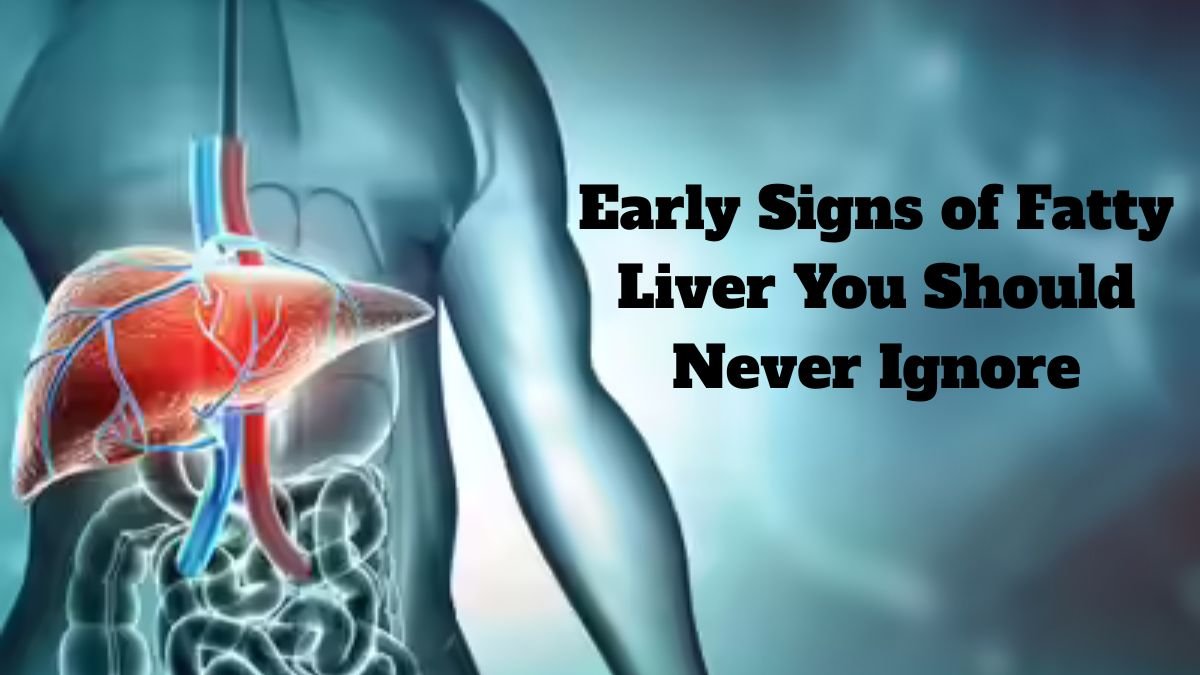Fatty liver is becoming a common but dangerous health problem these days. It occurs when excess fat accumulates in your liver. People often ignore the initial symptoms, which can lead to a serious condition. Therefore, it’s crucial to recognize it early and take appropriate action. In this blog, we’ll discuss 10 early signs of fatty liver in detail and explain how to prevent it.
Pain or heaviness in the upper abdomen
One of the most common early signs of fatty liver is mild pain or heaviness in the upper right abdomen. People often mistake this for gas or a digestive problem, but if it persists, don’t ignore it. Excess fat in the liver can cause swelling and discomfort.
Tip: Pay attention to your diet and lifestyle if you experience mild pain or heaviness.
Persistent fatigue and weakness
If you experience persistent fatigue or weakness without any apparent reason, this could also be a sign of fatty liver. The liver plays a vital role in removing toxins from the body and maintaining energy. When the liver isn’t functioning properly, the body feels tired and lacks energy.
Tip: Get enough sleep, engage in light exercise, and stay hydrated.
Sudden weight gain or fat accumulation around the abdomen
People with fatty liver often experience sudden weight gain or excess fat accumulation around the abdomen. This is not only due to fat accumulation but also due to a slowed metabolism caused by liver damage.
Tip: Eat a balanced diet and exercise regularly.
Loss of appetite or digestive problems
Liver problems can cause digestive problems such as loss of appetite, abdominal heaviness, indigestion, or bloating. The body is unable to digest food properly, preventing the full benefits of food.
Tip: Eat light and balanced meals; avoid oily and fast foods.
Jaundice
Yellowing of the skin and eyes can be a major sign of severe fatty liver disease. This condition occurs when the liver cannot produce enough bile or cannot properly eliminate toxins.
Tip: This is a serious sign of any liver problem; consult a doctor immediately.
Nausea and Vomiting
When the liver is not functioning properly, toxins accumulate in the body, leading to nausea, vomiting, or vomiting. This is often seen in the early stages of fatty liver.
Tip: If nausea persists, consult a doctor.
Unusual Fatigue and Sleep Problems
Liver conditions can reduce energy levels and affect sleep quality. Many people feel tired during the day even after getting enough sleep at night.
Tip: Do light exercise and reduce stress.
Changes in Urine and Stool Color
Liver problems can cause dark yellow or brown urine and pale stools. This is due to fat accumulation in the liver and bile-related problems.
Tip: If you notice these symptoms, consult a doctor immediately.
Effect on Mood and Mental Health
Fatty liver can also affect mental health. Some people may feel depressed, irritable, or have difficulty concentrating. This may be a sign of reduced liver function and toxin accumulation in the body.
Tip: A balanced diet, yoga, and meditation are beneficial for mental health.
Redness or Itchiness on the Skin
In some cases, fatty liver can cause redness, itching, or swelling on the skin. This is caused by the accumulation of toxins in the body due to poor liver function.
Tip: Take natural herbal creams or medications as directed by your doctor.
Ways to Prevent Fatty Liver
Balanced Diet: Avoid oily and junk food, eat green vegetables, fruits, and fiber-rich foods.
Regular Exercise: Walk or do light exercise for at least 30 minutes daily.
Avoid Alcohol: Alcohol puts excessive pressure on the liver.
Reduce Stress: Yoga, meditation, and adequate sleep are essential for liver health.
Regular Checkups: Get a Liver Function Test (LFT) every 6 months.
Conclusion
Fatty liver is a common but serious condition that needs to be identified early. Abdominal heaviness, fatigue, loss of appetite, yellowing of the skin and eyes, nausea, or discoloration of urine/stool—these are all early signs. Ignoring them can lead to permanent liver damage.
